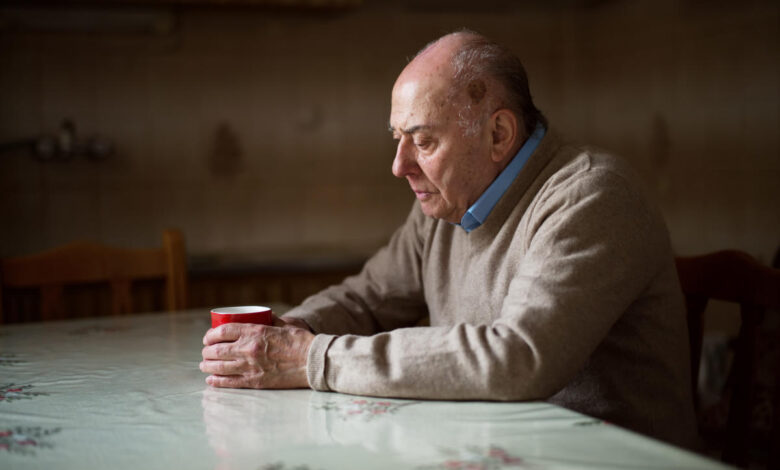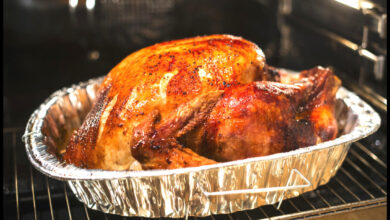The Health Impact of Losing a Life Partner: What You Need to Know

To step into the abyss of widowhood is to embrace a profound tempest of grief. The heart-wrenching void left by a partner’s departure unfurls waves of sorrow that wash over the survivor, often leaving them disoriented, anxious, and grappling with shadows of uncertainty about the time that lies ahead. The demise of a spouse carries with it not just emotional despair but can ensnare the surviving partner’s physical well-being, spiraling them toward what researchers ominously term the “widowhood effect.” This cumbersome notion highlights an elevated mortality risk that looms particularly menacingly in the wake of the initial three-month bereavement period for older adults.
“The widowhood effect encapsulates the stark reality that the surviving spouse faces a heightened risk of death following their partner’s passing,” elucidates Dawn Carr, a formidable scholar in sociology and director at the Claude Pepper Center at Florida State University, in conversation with Yahoo Life. “Significantly, this phenomenon is predominantly witnessed among the elderly demographics; younger cohorts do not exhibit the same vulnerabilities,” she elaborates.
A tantalizing question emerges: what fuels this widowhood effect? What preventative measures can be deployed to stave off this tragic fate? Experts proffer their insights.
Health Complications Amplify Risks
Recent inquiries unveil that stepping into the annals of widowhood later in life’s journey can catalyze dire health dilemmas, especially for those already wrestling with chronic illnesses—an insidious precursor to the widowhood effect.
As per a groundbreaking study published in the September 2024 edition of JAMA Network, adults aged 65 and above grappling with afflictions such as dementia, cancer, or organ failure demonstrate an alarming propensity for functional decline and increased mortality rates post bereavement compared to their healthier counterparts.
Earlier explorations chronicled in the Journal of Public Health revealed that individuals aged 50 and older faced a staggering 66% surge in mortality risk within a mere 90 days of their spouse’s demise.
Deciphering the Widowhood Effect
A mélange of factors conspire to heighten the likelihood of experiencing the widowhood effect, posits Carr. When individuals have intertwined their very identities with their partners over decades, the severance of that bond can foster an isolation that severely diminishes their social tapestry. “The absence of companionship can plunge one into solitude,” she reflects.
If the bereaved spouse has borne the weight of caregiving during their partner’s waning days, the ensuing burden can wreak havoc on their physical and psychological health. “Caregiving exacts a toll that is both physiological and emotional,” Carr articulates. “The cessation of this life’s purpose—caring for another—can leave one adrift.”
Couple this loss with a burden of guilt: survivors may grapple with feelings of relief mingled with a sense of betrayal for feeling such an emotion. “It’s poignant to note that relief can morph into guilt, complicating the grieving process,” Carr emphasizes. This troubling paradox stems from the dual realities of witnessing a loved one’s suffering end and the alleviation of caregivers’ own arduous duties.
Grief’s Insidious Link to Inflammation
While inflammation is a critical component of our physical defenses, chronic inflammation is the harbinger of numerous persistent illnesses. Investigations by Rice University scholars unveiled a stark revelation: profound grief can spike inflammation levels alarmingly, potentially leading to mortal consequences. From an analysis of nearly 100 blood panels of grieving partners, it was found that those engulfed in grief displayed a staggering 17% uptick in inflammatory markers, with the most affected surpassing that baseline by a formidable 54%.
“Under stress, our bodies respond with an inflammatory cascade,” explains Christopher Fagundes, the lead architect behind the study. “Yet in the throes of chronic stress, immune systems become desensitized to natural anti-inflammatory reprisals, akin to how caffeine loses its initial jolt on a habitual drinker. If deprived of its anti-inflammatory countermeasures, the body can descend into chaos.”
Fagundes underscores that the combined stresses stemming from grief exert a far greater influence on the body compared to the mundane pressures of life—think the agonies of rush-hour traffic. The intimate bonds cultivated through partnership mean that their rupture evokes a uniquely destabilizing physiological response. “Our data reveals that the loss of a loved one, particularly a spouse, reverberates with unparalleled intensity across the system,” he states.
Furthermore, mourning can usher in detrimental shifts in lifestyle choices, ranging from disrupted sleep-patterns to harmful eating habits, perpetuating the cycle of inflammation. Fagundes asserts that the specter of depression, rampant in those who have lost their partners, closely aligns with soaring inflammation levels. Those dwelling in heartbreak face significant risks, not merely of pervasive melancholy but also heart ailments, strokes, and the specter of premature death looming larger. “Given that heart disease reigns as the foremost cause of death, such correlations ought not to surprise,” he remarks.
Navigating the Path Away from the Widowhood Effect
Carr and Fagundes proffer a suite of actionable strategies for fortifying one’s health, during both the arduous caregiving phase and the subsequent mourning period:
1. Seek Assistance During Caregiving. Carve out moments to delegate responsibilities periodically. “Enlist help to recover your footing while navigating the caregiving maelstrom,” advises Carr.
2. Foster Communication. Despite the emotional drain, cultivating connection with friends and family remains paramount. “Sustaining those bonds is vital for resilience,” insists Fagundes, emphasizing that men particularly struggle to forge new connections later in life.
3. Prioritize Your Own Well-Being. Caregivers must not neglect their health. “Many overlook essential medical care in the throes of caregiving,” cautions Carr, urging them to schedule checkups and re-establish their health routines.
4. Construct a Daily Agenda. “Implement a routine and adhere to it,” Fagundes advises. The chaos of caregiving and grief can annihilate structure; establish a meticulously planned daily agenda.
5. Refresh Your Skills. As couples often bifurcate household responsibilities, revitalize dormant skills, like cooking. “Consider engaging in a cooking class—an opportunity for both skill-building and socializing,” Fagundes suggests.
6. Welcome a Furry Friend. Research led by Carr illuminated the salubrious effects of pet ownership on mental health post-bereavement. “A dog, for instance, not only incites outdoor activity but fosters social connections and imbues life with a renewed sense of purpose,” she advises. While this may not suit all, the companionship of an animal offers solace to many.
7. Embrace Volunteerism. Carr’s research underscores the psychological uplift that volunteering can yield for those grappling with loss. “Engaging in meaningful action curbs loneliness and fosters new social connections, replacing introspection with purpose,” she concludes.




